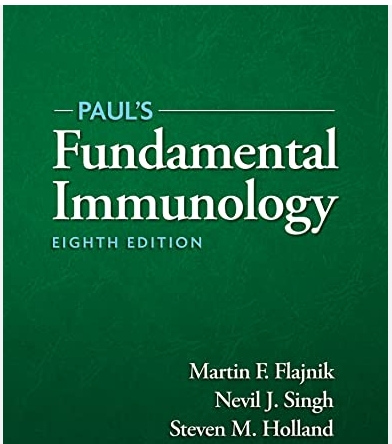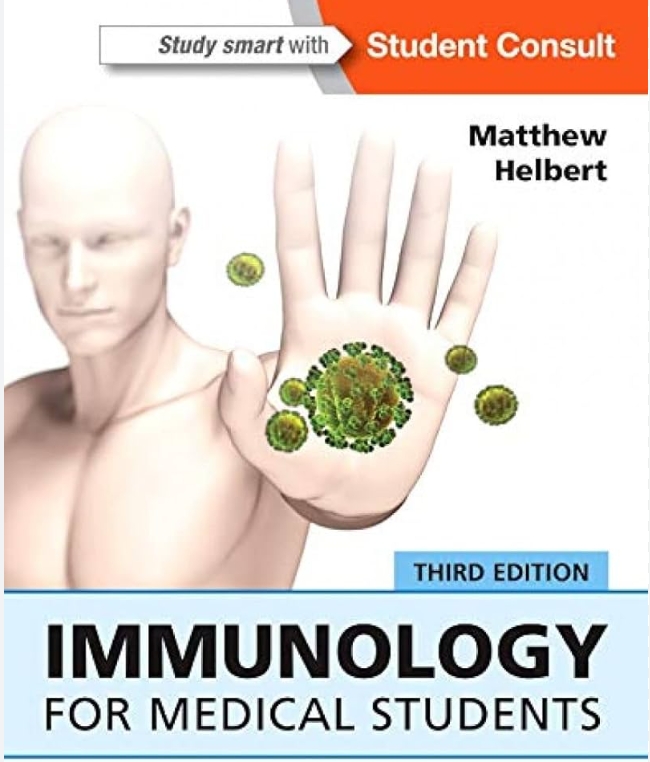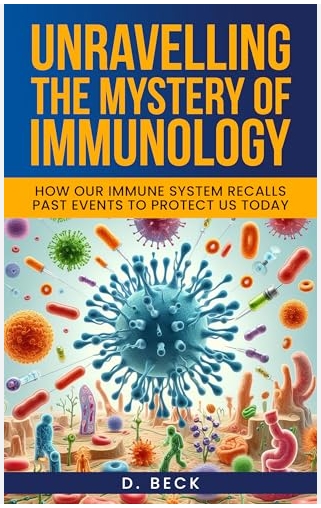Understanding Immunology Through the Best Medical Textbooks. Immunology is a key branch of biology and medicine that focuses on the body’s defense mechanisms against diseases. Whether you are a medical student, researcher, or healthcare professional, a solid understanding of immunology is crucial. The best medical textbooks on immunology serve as invaluable resources, providing in-depth knowledge on the immune system, disease mechanisms, and therapeutic approaches.
In this article, we’ll explore some of the top textbooks that help students and professionals better understand immunology and its importance in medicine.
Why is Immunology Important in Medicine?
The Foundation of Disease Defense
Immunology explains how the body protects itself from harmful pathogens such as bacteria, viruses, and parasites. It also helps us understand how the immune system can sometimes malfunction, leading to autoimmune diseases or immune deficiencies.
Key Role in Vaccine Development
Immunology plays a crucial role in developing vaccines and immunotherapies. A solid grasp of immune responses is necessary for creating treatments for various diseases, including cancer and infectious diseases.
Relevance to Clinical Practice
Doctors and medical professionals use immunology knowledge to diagnose and treat diseases like HIV, autoimmune disorders, and cancers. Understanding the immune system is also essential for managing transplant patients, preventing infections, and improving immunotherapies.
Top Medical Textbooks to Understand Immunology

1. Janeway’s Immunobiology
Overview
One of the most well-regarded textbooks in immunology, Janeway’s Immunobiology, written by Kenneth Murphy and Casey Weaver, provides a thorough, up-to-date look at the immune system. It is widely used by medical students and professionals alike for its clarity and depth.
Why It’s Essential
-
Comprehensive Overview: Covers all aspects of immunology, from innate immunity to adaptive immunity.
-
Well-Organized Structure: The textbook is known for its clear and logical structure, making complex topics easier to understand.
-
Clinical Relevance: Provides real-world clinical examples and case studies, linking immunological concepts to diseases and therapies.
What You’ll Learn
-
Mechanisms of immune responses, including the role of T-cells, B-cells, and antibodies.
-
How the immune system recognizes and fights infections.
-
The molecular and cellular basis of autoimmune diseases and immunodeficiencies.
2. Cellular and Molecular Immunology
Overview
Cellular and Molecular Immunology, authored by Abul K. Abbas, Andrew H. Lichtman, and Sheri A. Pillai, is a leading textbook for understanding the intricate details of immune system function at the cellular and molecular levels.
Why It’s Essential
-
Detailed Molecular Insights: This book is perfect for readers who want to dive deeper into the molecular mechanisms that underlie immune responses.
-
Clear Illustrations: The textbook includes numerous diagrams and illustrations that help visualize complex immune processes.
-
Clinical Case Scenarios: It applies immunological concepts to real-life medical scenarios, including cancer immunotherapy and HIV treatment.
What You’ll Learn
-
Cellular interactions between different immune cells.
-
The molecular pathways involved in immune activation and tolerance.
-
How immune dysfunction leads to diseases like autoimmune disorders, allergies, and transplant rejection.

3. The Immune System
Overview
The Immune System by Peter Parham is a widely used textbook known for its concise and accessible approach to immunology. Parham’s writing style makes complex immunological processes easy to understand without sacrificing depth.
Why It’s Essential
-
Simplified Approach: Offers a more straightforward approach to immunology, ideal for beginners or students who are just starting.
-
Clinical Relevance: Focuses on the clinical applications of immunology, making it highly practical for those in healthcare fields.
-
Comprehensive Coverage: Provides an in-depth look at immune system components and immune responses.
What You’ll Learn
-
The anatomy and physiology of the immune system.
-
How immune cells such as macrophages, T-cells, and B-cells function and interact.
-
Immune responses to pathogens and how the immune system contributes to disease resistance.
4. Basic Immunology: Functions and Disorders of the Immune System
Overview Understanding Immunology Through
Basic Immunology: Functions and Disorders of the Immune System, by Abul K. Abbas and Andrew H. Lichtman, is a comprehensive yet concise textbook. It offers a clear introduction to immunology with a strong focus on clinical applications.
Why It’s Essential
-
Clinically Focused: Emphasizes diseases and disorders related to the immune system, such as autoimmunity and allergic reactions.
-
User-Friendly Format: This book presents information in an easy-to-read, highly accessible format, making it ideal for quick understanding.
-
Colorful Illustrations: Visual aids help to explain difficult concepts in a more digestible way.
What You’ll Learn
-
The roles of immune cells and antibodies in protecting the body.
-
The mechanisms of immune response to infections and cancer.
-
Insights into immune disorders like lupus, rheumatoid arthritis, and multiple sclerosis.
View more youtube:
5. Immunology: A Short Course
Overview
Immunology: A Short Course, by Richard Coico and Geoffrey Sunshine, is a great option for those who want a more concise introduction to the subject. It’s especially helpful for students with limited time who need to focus on the fundamentals of immunology.
Why It’s Essential
-
Concise and Focused: Ideal for students who need a quick yet thorough understanding of immunology.
-
Practical Application: The textbook is rich in clinical examples and case studies, making it highly applicable to real-world situations.
-
Simplified Language: The language is accessible and designed for students who are new to the field.
What You’ll Learn
-
The basic principles of the immune system’s structure and function.
-
Key diseases associated with immune system dysfunction, including HIV/AIDS and cancer.
-
How vaccines and immunotherapy work at the cellular level.

Choosing the Right Immunology Textbook – Understanding Immunology Through
Level of Detail
If you’re a medical student or healthcare professional looking for an in-depth understanding, textbooks like Janeway’s Immunobiology and Cellular and Molecular Immunology are excellent choices. For those just starting or looking for a more concise introduction, Immunology: A Short Course and The Immune System by Parham may be more suitable.
Clinical Relevance
For those interested in the clinical applications of immunology, books like Basic Immunology and Cellular and Molecular Immunology provide a clinical perspective, bridging the gap between basic science and medical practice.
Visual Learning
Textbooks like The Immune System and Cellular and Molecular Immunology are rich in illustrations and diagrams, which can significantly help in understanding complex immune processes.
Final Thoughts Understanding Immunology Through
Immunology is a fundamental field in medicine, offering insights into how the body fights disease and how the immune system can sometimes go wrong. The textbooks mentioned above are some of the best resources available for mastering the subject. Whether you’re a student, researcher, or healthcare professional, these books will provide the knowledge you need to understand the intricacies of the immune system and apply that knowledge to clinical practice.

